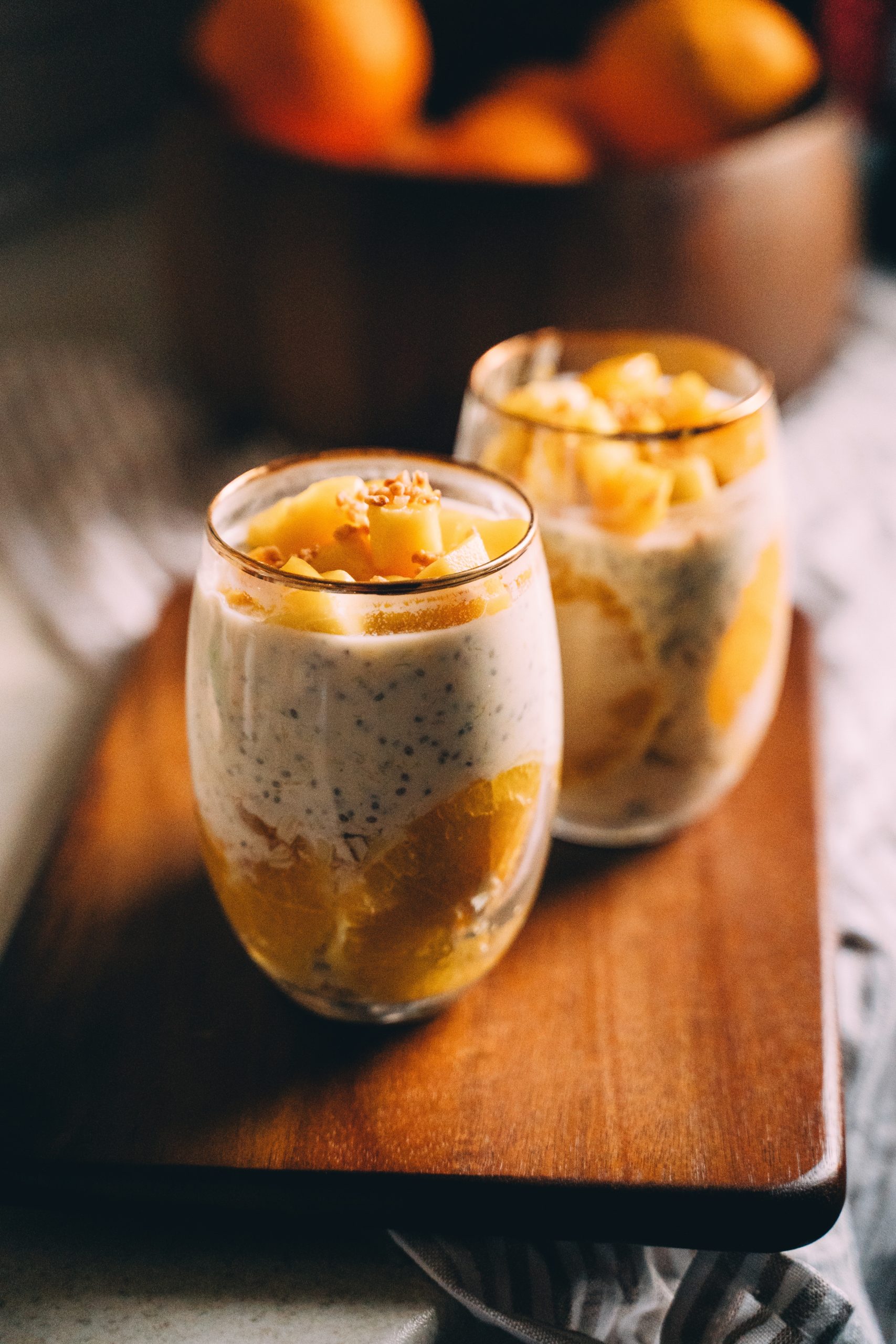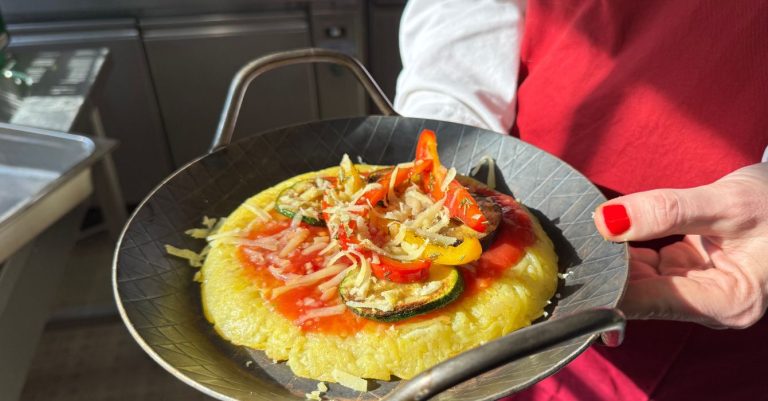Alkaline breakfast at home: chia pudding and alkaline bread
1. chia pudding
Chia seeds are an excellent basis for an alkalising breakfast. They contain a high proportion of omega-3 fatty acids, protein and fibre. These small seeds also help with digestion and regulate bowel movements. An easy way to incorporate them into your diet is to soak them in water or plant milk to make a kind of pudding. Simply mix a few tablespoons of chia seeds with about 3 times the amount of liquid and add some vanilla, cinnamon or other spices of your choice.
The quickest way to prepare them is to use warm water or warm plant milk, as the seeds then swell up more quickly. Warm meals are also easier on the stomach. Because dhe warming of food relaxes the stomach, stimulates digestion and the body needs less energy to process the food. This is particularly important in the morning, as the stomach is still resting after a long night and needs time to get back up to speed. A slightly warmed breakfast is an excellent option to gently activate the body and get the day going.
Alternatively, leave the seeds to soak in cool liquid overnight or with a little preparation time. In the morning you can then enjoy a delicious, healthy breakfast by adding toppings such as fruit (preferably warmed in a pan), toasted coconut flakes, nuts and sprouted seeds. If you don't strictly follow the alkaline fasting guidelines, you can also add muesli, unsprouted seeds or cocoa nibs.
You can use the plant milk of your choice. If you want to adhere to the alkaline fasting guidelines, you should only note that alkaline fasting does not include cereal-based plant milk, i.e. oat milk. In everyday life, however, you are welcome to choose this as a CO2-friendly milk alternative. In alkaline fasting, however, you can use nut milks such as almond milk or coconut milk. Coconut milk is particularly suitable form to achieve a creamy chia pudding. Alternatively, you can also puree the chia pudding to make the consistency finer and pulpier.
2. bread made from sprouted grain or pulses
Bread does not normally belong on an alkaline fasting menu, as cereals are not categorised as alkaline. However, you can sprout grains and then process them into bread. If you also ferment a dough made from sprouted grain, similar to sourdough, even more nutrients are made available to the body and the bread becomes even more digestible.
To bake bread from sprouted grain with a fermented dough, you can proceed as follows:
- If you want to use cereals or pulses in bread, soak them in water overnight.
- The next day, drain the water, rinse the grain or pulses and leave them covered for another day to sprout.
- The next day, mix the sprouted grain or pulses with water in a blender and process into a paste. Add a little salt and mix in vinegar, small pieces of apple or lemon juice to encourage fermentation.
- Cover this mixture and leave to ferment in a warm place for another 1-2 days.
- Stir the fermented dough again with a spoon before baking and pour into a tin. Bake the mixture at approx. 160°C for approx. 1 hour and leave to cool slightly before serving.
Buckwheat, for example, is a very suitable grain. If you want a little more bite or a more protein-rich bread, you can also add lentils or bake a lentil loaf using the same recipe. You can also use the batter to make savoury pancakes or bake a flatbread in the oven by spreading the batter on a tray. You can also find the recipe for the bread as Video to join in on the Youtube channel of the Landhotel Altes Zollhaus. There you will also find more recipe ideas with our colleagues, for example a Alkaline muesli and a alkaline almond bar.
Here you will find the alkaline fasting offers at the Landhotel Altes Zollhaus.








